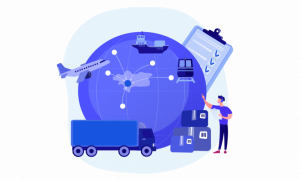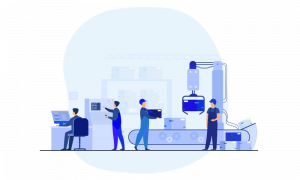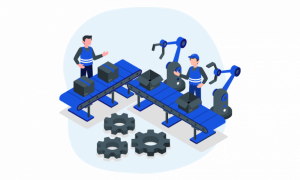Aligning SMEs to Megatrends and Industrial Revolution 4.0
Megatrends are global, sustained and macroeconomic forces of development that impacts business, economy, society, cultures and personal lives thereby defining our future world and its increasing pace of change.
Goods, capital and labour are now travelling globally at an ever faster pace and not in the usual patterns. Technological innovation is re-shaping commerce and industry across all sectors, as well as the work and lifestyle of the people. These changes are imminent at the national level and will reshape businesses through the way they think and operate. Therefore, SMEs that seizes the opportunities arising from the Megatrends stand to gain significantly


Thus, SMEs need to be nurtured on the importance of moving on to Industry 4.0 rather than maintaining themselves in conventional business. Benefits of industries moving on to Industry 4.0 are increase in flexibility, increase in productivity, increase in efficiency, quality and reduced time to market, more research development and demonstration (R&D&D) activities and the potential of developing new skills and talent globally.
SMEs should also know that the Government is currently formulating a national framework on IR 4.0 in order to promote the industry. In May 2017, the Cabinet tasked MITI, MOSTI and MOHE to lead this initiative. A High Level Task Force (HLTF) led by MITI with members from relevant Ministries and Agencies has been established since March 2017 to spearhead the development of the whole of Government strategies for Industry 4.0 with strong stakeholders’ feedback including from the industry.
These committees’ roles are to identify challenges, analyse existing gaps and propose action to be taken accordingly. Recommendations will be included in the overall National Policy on Industry 4.0. MITI and its agencies in collaboration with relevant Ministries and Agencies are also undertaking various outreach programmes to increase public/industry/academia/training institute’s awareness on Industry 4.0. Two major outreach programmes were done nationally on 2 May 2017 and 15 June 2017. More outreach programmes are in the planning stage including at the state and regional levels.
Malaysia’s manufacturing sector as a whole varies in terms of where they are currently ranging between 2.0 (mass production) and 3.0 (automation). However, there are industry leads already in the process of moving towards Industry 4.0 or becoming Industry 4.0 compliant on their own. RMK11 (2016-2020) has identified the three catalytic (E&E, M&E and Chemical) plus two new growth (Aerospace and Medical Devices) sectors as game changers for the manufacturing sector. These sectors will continue as the focus sectors together with other sectors such as automotive, petrochemicals, textiles and services.
In addition, the Government is committed in moving away from low-skilled/foreign workers dependency particularly for the manufacturing sector. Adopting new technology to ensure companies are more efficient and productive will be in tandem with global trends. SMEs should know that cheap labour is unsustainable in the long run and likely to human errors thus reducing the quality of products produced. The adoption of Industry 4.0 in this type of organization will increase efficiency and promote zero-defect output.
Thus, SMEs should not be afraid to embark on digital transformation as the global trends show companies that are not confined to the traditional way of doing things and utilise technology to its advantage have a higher chance of remaining relevant and successful in the long run.
Source: MITI website and SME Corp. Malaysia 2017 survey

